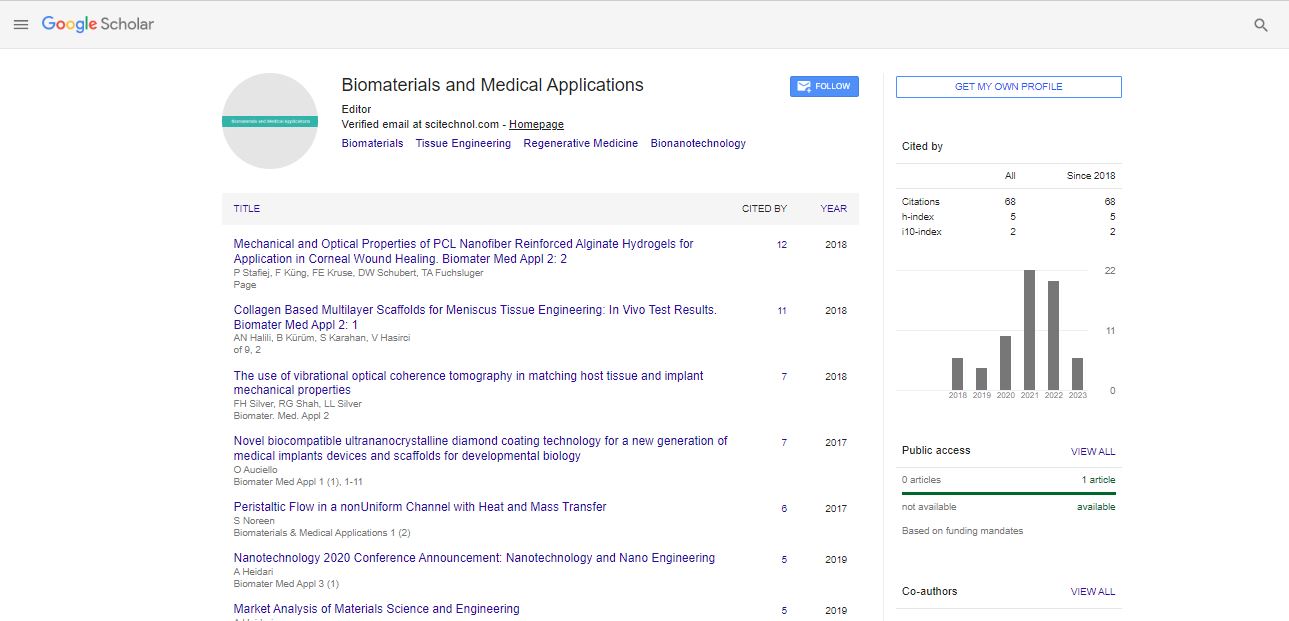PCL based toughness modifiers for biophotopolymers
C Hofstetter, S Orman, F Reinauer, A Aksu, R Liska, S Baudis, J Stampfl
Vienna University of Technology, Austria
Karl Leibinger Medizintechnik GmbH & Co. KG, Germany
: Biomater Med Appl
Abstract
In the last decade, lithography-based additive manufacturing (L- AMT) particularly digital light processing (DLP) based stereolithography has become a valuable tool for the fabrication of patient specific (bone)implants of including 3D microstructures.1 However, a main issue of common photopolymers i.e. (meth)acrylates are the high cytotoxicity and low biocompatibility, especially if applied as biodegradable implant. Moreover, due to brittle mechanical properties, an appropriate use as bone substitution material for oral or maxillofacial traumata is hardly possible. In this work, we present an optimized vinyl ester based biophotopolymer with low cytotoxicity, good biocompatibility and enhanced mechanical properties. The base formulation containing divinyl adipate, (DVA) was modified with thiol-ene chemistry (trimethylpropane tri(3-mercaptopropionate) (TMPMP))2, along with high molecular weight additives, poly(caprolactone) (PCL), divinyl carbonate (DVC) and urethane dithiol (UDT), both based on poly(caprolactone) (PCL), to improve curing reactivity and toughness, respectively. These formulations were characterized by realtime-near infrared- photorheology (RT- NIR-photorheology) to investigate curing- and material parameters (i.e. reactivity, double bond conversion and shrinkage stress)3. Furthermore, the mechanical properties were tested via tensile test, dynamic mechanical thermal analysis (DMTA), and dynstat impact resistance test. Finally, it was possible to print 3D test structures to prove the applicability as a possible bone substitution material in future.
Biography
C Hofstetter is pursuing his PhD at the Institute of Materials Science and -Technology at the Vienna University of Technology, Austria in the field of additive manufacturing of biocompatible, biodegradable photopolymers. After his studies in mechanical engineering (BSc) and biomedical engineering (MSc), he worked as a development engineer at a medical technology company.
E-mail: Christoph.Hofstetter@tuwien.ac.at
 Spanish
Spanish  Chinese
Chinese  Russian
Russian  German
German  French
French  Japanese
Japanese  Portuguese
Portuguese  Hindi
Hindi 